You are Here: Home > North America Region > Expanding the Circle Project
Read the latest Expanding the Circle reports listed below to learn more:
Expanding the Circle Systemic Report (March 2016)
Expanding the Circle Site Report (March 2016)
Aboriginal People with Disabilities Know their Rights: Snap Shot (Sept. 2014)
The Context
Aboriginal people are diverse in terms of cultures, languages and locations. Yet they share common legacies and experiences of colonialism, such as oppression from the Indian Act and the multigenerational effects of the residential school system. Aboriginal people also face a disproportionate burden of disability and less local access to culturally appropriate services. Often, Aboriginal people with disabilities have to move away from their families and communities just to access the services that enable equal enjoyment of their human rights. There needs to be more awareness of the human rights experiences of Aboriginal people with disabilities. Too often their perspectives on their life circumstances have been neglected.
Disability rights monitoring – the collection, analysis and mobilization of information about the human rights circumstances of people with disabilities – can raise awareness of the human rights experiences of Aboriginal of people with disabilities and thereby ensure the equal enjoyment of human rights among this group. In order to be effective, disability rights monitoring efforts must directly and centrally involve Aboriginal people with disabilities and their communities. Disability rights monitoring tools and training resources that are relevant to Aboriginal communities and cultures must also be developed.
The Project
The ‘Expanding the Circle’ project is a 3 year SSHRC-funded partnership that will work collaboratively with Aboriginal people with disabilities in Ontario and their organizations to promote disability rights monitoring initiatives in Aboriginal communities. This partnership of Aboriginal community groups, universities, government representatives and scholars from diverse backgrounds and disciplines will develop a shared vision of disability as well as culturally appropriate disability rights monitoring tools. Aboriginal people with disabilities and members of Aboriginal community organizations will then be trained to use these tools to conduct disability rights monitoring in their own communities, and will be empowered to continue monitoring disability rights beyond the duration of this project.
The information gained from these community-based disability monitoring efforts will be disseminated in multiple languages through community human rights reports, multi-media projects, open access publications and policy briefs in order to raise awareness of the need to change public policies in ways that promote the human rights of Aboriginal people with disabilities. Although initially piloted in Ontario, this partnership will provide the basis for a larger study that can lead to creating a national coalition on disability rights and monitoring directed by Aboriginal communities.
The project can be conceptualized in four, interconnected stages:
- Envisioning Rights: Bringing together multiple visions and understandings
- Building Knowledge: Documentation of the current knowledge of the situation of Aboriginal people with disabilities in Canada
- Building Capacity: Disability Rights Education and Monitoring
- Action: The knowledge that has been gained will be taken up by our partners to advocate for changes to policies and to scale up the monitoring practices
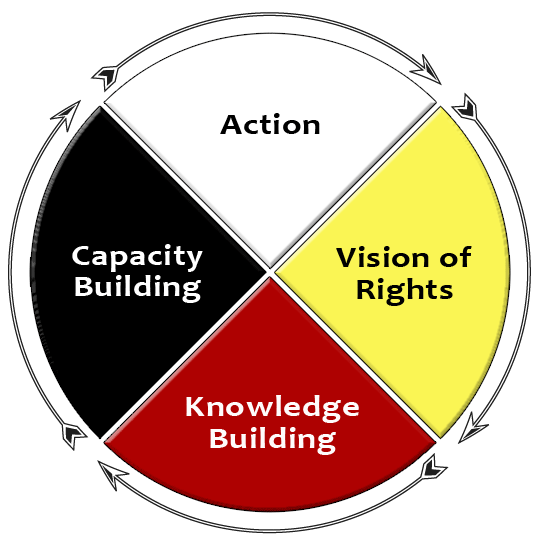 See our ‘People’ section below to learn more about who is currently involved with the project. If you would like more information about the project or are interested in participating in the ‘Expanding the Circle’ project, please email Marcia Rioux, principle investigator for the project and Co-Director of Disability Rights Promotion International.
See our ‘People’ section below to learn more about who is currently involved with the project. If you would like more information about the project or are interested in participating in the ‘Expanding the Circle’ project, please email Marcia Rioux, principle investigator for the project and Co-Director of Disability Rights Promotion International.
Expanding the Circle – People
Contents at a Glance
- Principle Ivestigator
- Partners
- Project Co-Ordinator
- Organizational Partners
- Current Students
- Past Students
Principle Investigator
Marcia Rioux
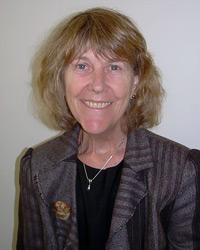 At York University, Toronto, Marcia Rioux is a Professor in the School of Health Policy and Management MA and PhD (Critical Disability Studies) as well as the Director of the York Institute of Health Research. She also teaches a core course in the newly inaugurated PhD (Critical Disability Studies) at the University of Zagreb, Croatia. With Bengt Lindqvist, she is the co-Director of Disability Rights Promotion International, a multi-year project to monitor disability rights nationally and internationally. Professor Rioux’s research includes health and human rights, universal education, international monitoring of disability rights, the impact of globalization on welfare policy, literacy policy, disability policy, and social inclusion. Dr. Rioux has lectured throughout the Americas, Europe, Africa and Asia. She has been an advisor to federal and provincial commissions, parliamentary committees, and international NGO’s as well as United Nations agencies. She has edited a number of collected volumes and nearly 70 book chapters and articles on disability rights. She has just completed an appointment as a Distinguished Visiting Fellow at the Institute for Advanced Study at LaTrobe University in Melbourne, Australia. Her PhD is in Jurisprudence and Social Policy from Boalt Hall Law School at the University of California, Berkeley.
At York University, Toronto, Marcia Rioux is a Professor in the School of Health Policy and Management MA and PhD (Critical Disability Studies) as well as the Director of the York Institute of Health Research. She also teaches a core course in the newly inaugurated PhD (Critical Disability Studies) at the University of Zagreb, Croatia. With Bengt Lindqvist, she is the co-Director of Disability Rights Promotion International, a multi-year project to monitor disability rights nationally and internationally. Professor Rioux’s research includes health and human rights, universal education, international monitoring of disability rights, the impact of globalization on welfare policy, literacy policy, disability policy, and social inclusion. Dr. Rioux has lectured throughout the Americas, Europe, Africa and Asia. She has been an advisor to federal and provincial commissions, parliamentary committees, and international NGO’s as well as United Nations agencies. She has edited a number of collected volumes and nearly 70 book chapters and articles on disability rights. She has just completed an appointment as a Distinguished Visiting Fellow at the Institute for Advanced Study at LaTrobe University in Melbourne, Australia. Her PhD is in Jurisprudence and Social Policy from Boalt Hall Law School at the University of California, Berkeley.
Partners
Cyndy Baskin
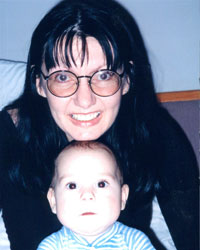 Cyndy Baskin, PhD, is of Mi’kmaq and Celtic descent, originally from NB, who has been living in Toronto for many years. Her clan is the fish and her spirit name translates as something like “The Woman Who Passes On The Teachings.” She is currently an Associate Professor in the School of Social Work at Ryerson University in Toronto, Ontario. Her teaching and research interests involve working with Aboriginal communities – especially on how Aboriginal worldviews can inform social work education, spirituality in social work practice, anti-racist inclusive schooling, post-colonial theories and practices, healing justice and decolonizing research methodologies. She is also a prolific writer with her latest book, entitled Strong helpers’ teachings: The value of Indigenous knowledges in the helping professions, published in the fall of 2011. Cyndy is the Chair of Ryerson University’s Aboriginal Education Council, the Chair of Ryerson University’s School of Social Work Aboriginal Advisory Committee and the Chair of the Toronto District School Board’s Aboriginal Community Education Council.
Cyndy Baskin, PhD, is of Mi’kmaq and Celtic descent, originally from NB, who has been living in Toronto for many years. Her clan is the fish and her spirit name translates as something like “The Woman Who Passes On The Teachings.” She is currently an Associate Professor in the School of Social Work at Ryerson University in Toronto, Ontario. Her teaching and research interests involve working with Aboriginal communities – especially on how Aboriginal worldviews can inform social work education, spirituality in social work practice, anti-racist inclusive schooling, post-colonial theories and practices, healing justice and decolonizing research methodologies. She is also a prolific writer with her latest book, entitled Strong helpers’ teachings: The value of Indigenous knowledges in the helping professions, published in the fall of 2011. Cyndy is the Chair of Ryerson University’s Aboriginal Education Council, the Chair of Ryerson University’s School of Social Work Aboriginal Advisory Committee and the Chair of the Toronto District School Board’s Aboriginal Community Education Council.
Prior to joining Ryerson, Cyndy worked as a helper/social worker for many years within Aboriginal agencies in Toronto and assisted many First Nations communities to set up culture-based programs to address areas such as family violence/sexual abuse for survivors and offenders, healing justice and child welfare. She continues as a consultant in these areas and in the development of Aboriginal programming within mainstream social services and educational institutions.
Sandi Bell
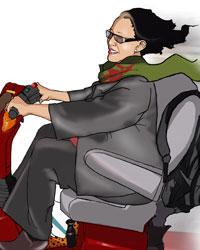 Sandi Bell was appointed as part-time Commissioner of the Canadian Human Rights Commission on January 29th, 2008. Ms. Bell is a highly respected human rights expert with more than 30 years of leadership experience. As an educator, keynote speaker, mediator and board member of numerous community organizations, she has been instrumental in improving the welfare of victims of discrimination. She is currently President of Empowword, a leading consulting firm involved in coaching, mediation and policy development related to equity, diversity and transformative justice. Her contribution both as a professional and a volunteer has been recognized with several awards and honorary titles. She is keenly aware of discrimination and social justice issues and has a solid knowledge of the legislation in addition to a reputation of excellence in conflict resolution and capacity building. As a woman, a person with a physical disability, and as an individual of both African-Canadian and Aboriginal-First Nations heritage, Commissioner Bell’s passion for human rights is both professional and personal.
Sandi Bell was appointed as part-time Commissioner of the Canadian Human Rights Commission on January 29th, 2008. Ms. Bell is a highly respected human rights expert with more than 30 years of leadership experience. As an educator, keynote speaker, mediator and board member of numerous community organizations, she has been instrumental in improving the welfare of victims of discrimination. She is currently President of Empowword, a leading consulting firm involved in coaching, mediation and policy development related to equity, diversity and transformative justice. Her contribution both as a professional and a volunteer has been recognized with several awards and honorary titles. She is keenly aware of discrimination and social justice issues and has a solid knowledge of the legislation in addition to a reputation of excellence in conflict resolution and capacity building. As a woman, a person with a physical disability, and as an individual of both African-Canadian and Aboriginal-First Nations heritage, Commissioner Bell’s passion for human rights is both professional and personal.
Yvonne Bohr
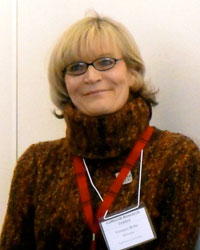 Dr. Bohr is a clinical psychologist specializing in child and family mental health in a multi-cultural context. Her interest in knowledge mobilization and exchange between academic and community settings drives the work of her laboratory. Prior to joining the department of Psychology at York in 2004, she was a practicing clinician, engaged in diverse community and educational psychology initiatives, as well as in mental health administration. She is still clinically active as the Head of an Infant Mental Health team in a Toronto children’s treatment centre. Having lived, studied and worked in North Africa, France, Germany, Serbia, and the US, she greatly appreciates the opportunities created by working and learning within a culture other than one’s own. Her clinical and research activities are rooted in a strong belief in children’s rights, social justice, and the important role of the social determinants of mental health. She believes that our country’s record when it comes to the rights of children, especially our First Nations’ children, leaves a lot to be desired, and that scientists and clinicians have an obligation to help improve this record. It is her firm conviction that children together with their parents should be entitled to the best available scientifically supported resources and interventions, that they should have a voice in these interventions, and that prevention and treatment should always be based on collaborative empiricism.
Dr. Bohr is a clinical psychologist specializing in child and family mental health in a multi-cultural context. Her interest in knowledge mobilization and exchange between academic and community settings drives the work of her laboratory. Prior to joining the department of Psychology at York in 2004, she was a practicing clinician, engaged in diverse community and educational psychology initiatives, as well as in mental health administration. She is still clinically active as the Head of an Infant Mental Health team in a Toronto children’s treatment centre. Having lived, studied and worked in North Africa, France, Germany, Serbia, and the US, she greatly appreciates the opportunities created by working and learning within a culture other than one’s own. Her clinical and research activities are rooted in a strong belief in children’s rights, social justice, and the important role of the social determinants of mental health. She believes that our country’s record when it comes to the rights of children, especially our First Nations’ children, leaves a lot to be desired, and that scientists and clinicians have an obligation to help improve this record. It is her firm conviction that children together with their parents should be entitled to the best available scientifically supported resources and interventions, that they should have a voice in these interventions, and that prevention and treatment should always be based on collaborative empiricism.
She and her students are interested specifically in:
- The study of parenting across cultures, specifically Aboriginal, Asian and Caribbean cultures
- The impact of globalization and immigration on infants, young children and families
- Infant Mental Health: Attachment difficulties and cognitive correlates
- Parental Attributions in families at risk for relational ruptures and maltreatment
- Cognitive behavioral interventions for children and families
- Evidence-based practices and knowledge exchange in community mental health
Nancy Davis Halifax
Nancy Viva Davis Halifax, assistant professor of critical disability studies at York University, holds a PhD from the University of Toronto, an MA from Vermont College of Norwich University, and a BFA from the Nova Scotia College of Art and Design. She is on the editorial review board of The Review of Disability Studies. Her teaching and research are shaped by her work as a conceptual artist and writer, and her commitment to social justice.
Douglas Durst
Dr. Douglas Durst has worked with community groups on the issues pertaining to First Nations self-government in various regions of Canada. In the Northwest Territories, he was involved in providing social services and developing indigenous community workers among the Dene and Inuit. For over 10 years, he has served on the Canadian Council on Multicultural Health and has published widely on social work practice with diverse communities. He applies participatory and qualitative research methods with some quantitative methods, attempting to capture a holistic understanding of the social integration and participation of marginalized Canadians. He holds a Master Degree of Social Work from Wilfrid Laurier University in Waterloo and a PhD. in Social Work from the University of Toronto.
Celia Haig-Brown
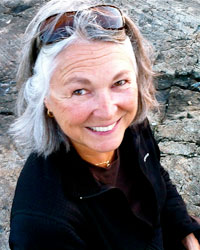 Celia Haig-Brown is Associate Dean Research and Field Development and a full Professor in the Faculty of Education, York University.Her doctorate in the Social Foundations of Educational Policy was issued by the University of British Columbia.Most recently, she served as co-facilitator for York University’s new Strategic Research Plan 2013-2018. She is a former Chair of Senate of York University, of Senate’s Academic Policy and Planning Committee, and the Senate Committee on Research. She also served four years as Graduate Program Director in Education.
Celia Haig-Brown is Associate Dean Research and Field Development and a full Professor in the Faculty of Education, York University.Her doctorate in the Social Foundations of Educational Policy was issued by the University of British Columbia.Most recently, she served as co-facilitator for York University’s new Strategic Research Plan 2013-2018. She is a former Chair of Senate of York University, of Senate’s Academic Policy and Planning Committee, and the Senate Committee on Research. She also served four years as Graduate Program Director in Education.
Her most recent SSHRC funded project, Education as Regeneration: Processes of Decolonization, relies on collaborations with community members as it focuses on the place of Indigenous knowledges in education broadly defined. From that grant comes a collaborative film, Pelq’ilc(Coming Home), made with her niece Helen Haig-Brown (Tsilhqot’in Nation) which was selected for the Smithsonian’s Native American Film Festival in New York in 2011. Their second film, Cowboys, Indians and Education, is currently hitting the festival circuit. Haig-Brown’s latest book, With Good Intentions: EuroCanadian and Aboriginal Relations in Colonial Canada (2006), is a collection of historical essays, co-edited with David Nock. Her ground-breaking work, Resistance and Renewal: Surviving the Indian Residential School, is still in print more than 20 years after its first publication in 1988 and is read in universities and communities across the country and beyond. She has written numerous articles and book chapters and presented her work at national and international conferences.
Haig-Brown is working with CBERN on their project with the Naskapi Nation, focusing on the community school and curriculum development related to responsible resource extraction. She is also a co-investigator on a SSHRC Partnership Development Grant focused on rights of Aboriginal people with disabilities and is working on a book from the last SSHRCgrant. When not doing other things, she teaches graduate courses in research methodologies and community education and a course called Pedagogy of the Land to undergraduates.
Archie Indoe
Archie Indoe began serving his Métis community as a charter member and councillor on the Saguingue Métis Council in 2001, under Saguingue’s (Saugeen’s) first president, Doug Court. Indoe has served continually since that time, and in 2008 was elected to the office of vice-president. In the early Fall, 2010, he became acting president. In addition to the elected positions Indoe has held, his dedication to reclaiming the heritage of his Métis ancestors has been an inspiration to the historic community. Indoe’s strength and leadership made it possible for the HSM community to be a free, independent and self-governed Historic Métis community, principles for which Louis Riel fought and died. Indoe’s vision for the future includes the development of a HSM strategic plan (early 2011), going forward with HSM’s Seven Generations Legacy Program (education and sustainability), and providing Métis community programs specific to HSM youth and elders, including harvesting. Indoe and his daughter, Jenna, are avid hunters.
Jon Johnson
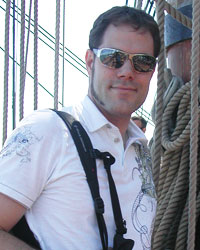 Jon has an MA in socio-cultural anthropology and is completing his PhD in the Communication and Culture Programme at York University. His doctoral research examines Indigenous land-based storytelling traditions in and about Toronto. In addition to teaching courses at York University, he works with First Story Toronto, an organization supported by Toronto’s Indigenous community which documents and shares the city’s rich Indigenous heritage through popular educational initiatives such as tours of the city, websites and smartphone apps. From 2002 to 2005, he worked with Dr. Kari Krogh on a national research project entitled, National Snapshot of Home Support from the Consumer Perspective: Enabling People with Disabilities to Participate in Policy Analysis and Community Development. More recently, he has collaborated with the History of Madness in Canada and Disability Rights Promotion International projects as a web design and accessibility consultant.
Jon has an MA in socio-cultural anthropology and is completing his PhD in the Communication and Culture Programme at York University. His doctoral research examines Indigenous land-based storytelling traditions in and about Toronto. In addition to teaching courses at York University, he works with First Story Toronto, an organization supported by Toronto’s Indigenous community which documents and shares the city’s rich Indigenous heritage through popular educational initiatives such as tours of the city, websites and smartphone apps. From 2002 to 2005, he worked with Dr. Kari Krogh on a national research project entitled, National Snapshot of Home Support from the Consumer Perspective: Enabling People with Disabilities to Participate in Policy Analysis and Community Development. More recently, he has collaborated with the History of Madness in Canada and Disability Rights Promotion International projects as a web design and accessibility consultant.
Patricia Lamotte
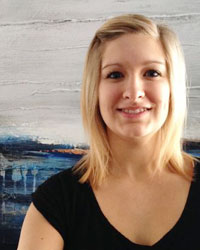 Patricia Lamotte currently works at the Office des personnes handicapées du Québec (OPHQ) as a researcher advisor and has held this position since June 2012. One of her main projects looks at the lives of Aboriginal people with disabilities in Quebec who are currently living off-reserve. This project consists of both a literature review and statistical analysis. Prior to working at the OPHQ, she was a full-time student studying for a master’s in anthropology from the Université Laval in Québec. Completed in January 2014, her master’s research focused on visual and performance artists who came to Montreal as refugees. She studied how they transmit the traumatic experiences suffered in their countries of origin in to their pieces of art and finally how their art evolve to present elements from Canadian society to create cultural hybridity.
Patricia Lamotte currently works at the Office des personnes handicapées du Québec (OPHQ) as a researcher advisor and has held this position since June 2012. One of her main projects looks at the lives of Aboriginal people with disabilities in Quebec who are currently living off-reserve. This project consists of both a literature review and statistical analysis. Prior to working at the OPHQ, she was a full-time student studying for a master’s in anthropology from the Université Laval in Québec. Completed in January 2014, her master’s research focused on visual and performance artists who came to Montreal as refugees. She studied how they transmit the traumatic experiences suffered in their countries of origin in to their pieces of art and finally how their art evolve to present elements from Canadian society to create cultural hybridity.
David McNab
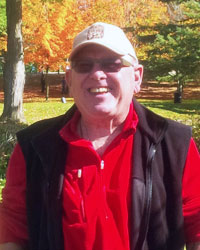 David T. McNab is a Métis historian who has worked for more than thirty-five years on Indigenous land and treaty rights issues in Canada. David teaches Indigenous Thought and Canadian Studies in the Department of Equity Studies / Humanities in the Faculty of Liberal Arts and Professional Studies at York University, in Toronto. He has also been a claims advisor for Nin.Da.Waab.Jig., Walpole Island Heritage Center, Bkejwanong First Nations since 1992. In addition to over ninety articles, David has published Earth, Water, Air and Fire: Studies in Canadian Ethnohistory (editor) (1998) and Circles of Time: Aboriginal Land Rights and Resistance in Ontario (1999) as well as the co-edited Blockades and Resistance: Studies in Actions of Peace and the Temagami Blockades of 1988-89 (2003), Walking a Tightrope: Aboriginal People and their Representations (2005), The Long Journey of Canada’s Forgotten People: Métis Identities and Family Histories (2007), all with WLU Press. In 2008 he published the Fourth Edition (with Olive Patricia Dickason), of Canada’s First Nations, (Oxford University Press) and in 2009 he published No Place for Fairness: Indigenous Land Rights and Policy in the Bear Island Case and Beyond, with McGill-Queens University Press. In 2013 he co-authored Indigenous Voices and Spirit Memory with Aboriginal Issues Press as well as Historic Saugeen Metis, A Heritage Atlas (with Paul-Emile McNab) published by Essence Publishing for the Historic Saugeen Metis in Southampton. He is currently working on the Fifth Edition of Canada’s First Nations scheduled for publication by Oxford University Press late in 2014 and a book MSS (with Paul-Emile McNab) tentatively entitled ‘Arctic Prescription’: William Kennedy’s (1814-90) Search for Sir John Franklin in 1851-55”.
David T. McNab is a Métis historian who has worked for more than thirty-five years on Indigenous land and treaty rights issues in Canada. David teaches Indigenous Thought and Canadian Studies in the Department of Equity Studies / Humanities in the Faculty of Liberal Arts and Professional Studies at York University, in Toronto. He has also been a claims advisor for Nin.Da.Waab.Jig., Walpole Island Heritage Center, Bkejwanong First Nations since 1992. In addition to over ninety articles, David has published Earth, Water, Air and Fire: Studies in Canadian Ethnohistory (editor) (1998) and Circles of Time: Aboriginal Land Rights and Resistance in Ontario (1999) as well as the co-edited Blockades and Resistance: Studies in Actions of Peace and the Temagami Blockades of 1988-89 (2003), Walking a Tightrope: Aboriginal People and their Representations (2005), The Long Journey of Canada’s Forgotten People: Métis Identities and Family Histories (2007), all with WLU Press. In 2008 he published the Fourth Edition (with Olive Patricia Dickason), of Canada’s First Nations, (Oxford University Press) and in 2009 he published No Place for Fairness: Indigenous Land Rights and Policy in the Bear Island Case and Beyond, with McGill-Queens University Press. In 2013 he co-authored Indigenous Voices and Spirit Memory with Aboriginal Issues Press as well as Historic Saugeen Metis, A Heritage Atlas (with Paul-Emile McNab) published by Essence Publishing for the Historic Saugeen Metis in Southampton. He is currently working on the Fifth Edition of Canada’s First Nations scheduled for publication by Oxford University Press late in 2014 and a book MSS (with Paul-Emile McNab) tentatively entitled ‘Arctic Prescription’: William Kennedy’s (1814-90) Search for Sir John Franklin in 1851-55”.
Don Shakel
Over the past 20 years he has worked across sectors as an individual, family and group therapist in community-based mental health and additions services and as a consultant, trainer and clinical supervisor in varied health, social service and educational settings. He attained his formal training through the University of Manitoba, Simon Fraser University and the University of Toronto. He received an Interdisciplinary Masters Degree in Disability Studies from the University of Manitoba, with his thesis titled; The experiences of First Nations people with disabilities and their families in receiving services and supports in First Nations communities in Manitoba – Honouring the Stories. For the past 12 years he has worked as a Disability/ Special Education Specialist for First Nations schools in Manitoba. His particular interest has been building capacity and developing community based services and supports with First Nations children with disabilities and their primary and secondary caregivers. He is currently completing my PhD in Education at the University of Manitoba and is a sessional instructor at the University of Manitoba in the Faculty of Education. He is currently working for other government department departments and Universities and is a program consultant with York University.
Steve Teekens
Steve Teekens is an Ojibway of Nipissing First Nation, is the proud father of three children, and grandfather of two. Steve and his family reside in Toronto were he has been working with the marginalized and homeless sector since 1995. Steve worked twelve years at Native Child and Family Services where he started as the Street Outreach Worker and left as the manager of the Youth Services, then he went to YOUTHLINK Inner City/ Youth Skills Zone for a year as the manager of both programs only to land at Native Men’s Residence as the Shelter Manager there for the last two years. Steve is very active in Toronto’s Aboriginal Community where he volunteers on the board of Miziwe Biik Aboriginal Employment and Training, Aboriginal Legal Services Community Council Program, and Toronto Police Services Aboriginal Consultative Committee. Steve also teaches traditional drumming and to the youth and men at various Native organizations inside and outside the city. Steve enjoys working and volunteering in the Aboriginal Community and wishes to see people overcome their obstacles and find the resilience in themselves to succeed in life.
Project Co-Ordinator
Melanie Moore
Organizational Partners
Canadian Human Rights Commission (CHRC)
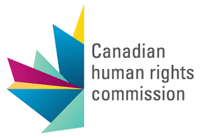 The role of the CHRC is to create an inclusive society where everyone is valued and respected. Parliament created the Canadian Human Rights Act in 1977 to provide equal opportunity to everyone in Canada and to help people confront discrimination in their daily lives. Parliamentarians shared a vision of a country where “all individuals should have an opportunity equal with other individuals to make for themselves the lives that they are able and wish to have”, free from discrimination. The Canadian Human Rights Commission was created to administer the Canadian Human Rights Act. It also ensures compliance with the Employment Equity Act. The Commission operates independently from government when administering these two acts of Parliament. The Commission promotes the core principle of equal opportunity and works to prevent and remedy discrimination in Canada by:
The role of the CHRC is to create an inclusive society where everyone is valued and respected. Parliament created the Canadian Human Rights Act in 1977 to provide equal opportunity to everyone in Canada and to help people confront discrimination in their daily lives. Parliamentarians shared a vision of a country where “all individuals should have an opportunity equal with other individuals to make for themselves the lives that they are able and wish to have”, free from discrimination. The Canadian Human Rights Commission was created to administer the Canadian Human Rights Act. It also ensures compliance with the Employment Equity Act. The Commission operates independently from government when administering these two acts of Parliament. The Commission promotes the core principle of equal opportunity and works to prevent and remedy discrimination in Canada by:
- promoting the development of human rights cultures;
- understanding human rights through research and policy development;
- protecting human rights through effective case and complaint management; and
- representing the public interest to advance human rights for all Canadians.
Grand Council Treaty #3
The Grand Council Treaty #3 existed in the territory of the Anishinaabe Nation which was key to Canadian Confederation — the British who wanted to plan a route between Fort Garry and Fort William (now Thunder Bay, Ontario and Winnipeg, MB). In fact, their treaty was planned to be the first post-Confederation treaty, but the Anishinaabe held firm to their position that they would not cede lands nor allow farming or settlement in their territory. On October 3, 1873, the 55,000 square miles of territory agreed to be shared between the Anishinaabe and the British, had their representatives sign Treaty #3. The Chiefs negotiated, among other things, that their ‘business’ would be allowed within the entire territory and that both the lands and resources would be shared between them as ‘brothers’.
Historic Saugeen Métis (HSM)
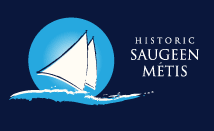 The Historic Saugeen Métis (HSM) is a distinctive Aboriginal community – descended from unions between our European traders and Indian women. They are the Lake Huron watershed Métis – with a unique Métis history and culture who lived, fished, hunted, trapped, and harvested the lands and waters of the Bruce Peninsula, the Lake Huron proper shoreline and its watersheds, their traditional Métis territory. The HSM traded in a regional network since the early 1800s as far as the north shore of Lake Huron and have kinship with the Wikwemikong First Nations community and Killarney Métis community. Upon the decline of the fur trade in the early 1820s, Métis families from the Northwest joined these early Metis at Goderich. The community traded in a cohesive regional trading network that extended from the Upper Detroit River system to the northern shoreline of Lake Huron, to the historic Métis community of Killarney, creating kinship along the network from Detroit to Killarney.
The Historic Saugeen Métis (HSM) is a distinctive Aboriginal community – descended from unions between our European traders and Indian women. They are the Lake Huron watershed Métis – with a unique Métis history and culture who lived, fished, hunted, trapped, and harvested the lands and waters of the Bruce Peninsula, the Lake Huron proper shoreline and its watersheds, their traditional Métis territory. The HSM traded in a regional network since the early 1800s as far as the north shore of Lake Huron and have kinship with the Wikwemikong First Nations community and Killarney Métis community. Upon the decline of the fur trade in the early 1820s, Métis families from the Northwest joined these early Metis at Goderich. The community traded in a cohesive regional trading network that extended from the Upper Detroit River system to the northern shoreline of Lake Huron, to the historic Métis community of Killarney, creating kinship along the network from Detroit to Killarney.
LaMarsh Centre for Child and Youth Research
The LaMarsh Centre for Child and Youth Research is a collaborative group of faculty and students that supports community-engaged interdisciplinary research in health, education, relationships and development of infants, children, adolescents, emerging adults and families everywhere. Their research programs are based on three common themes. First, their faculty members are engaged in research on youth, defined as the first two decades of the life span. The problems of youth are of broad concern not only to the academic community but also to society at large. Second, their faculty members examine factors and conditions that place youth at risk for maladaptive outcomes, both physical and psychological. Risk factors of interest include ecological, social, behavioral, and physical conditions that impede well-being. This focus includes applied research that investigates programs designed to prevent risky behavior, such as violence or HIV / AIDS risk. Finally, our faculty members are engaged in programs that promote positive physical or mental health in youth. The scientific study of risk implies a complementary examination of factors which protect against risk and promote resiliency. LaMarsh faculty members are committed to research which promotes positive youth development.
Manitoba First Nations Education Resource Centre (MFNERC)
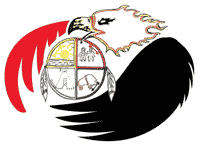 Established in 1999 by the Assembly of Manitoba Chiefs, the MFNERC provides the province’s leading education, administration, technology, language, and culture services to First Nations schools in Manitoba. Over the years, the MFNERC has evolved from its humble beginnings, providing service on demand with a handful of employees, into a multifaceted organization that meets the needs of Manitoba’s First Nations schools with unparalleled services and support. The MFNERC facilitates a community education process based on First Nations’ needs, priorities and education plans. The MFNERC promotes community development by providing training and coordinating opportunities for families and other community members. Professional development training is also provided for school board members, administrators, teachers and teaching assistants. The MFNERC works with Manitoba First Nations in the development of partnerships to ensure the highest standards of education are achieved in First Nations schools. The MFNERC promotes and encourages First Nations involvement in all aspects of the development and implementation of educational change.
Established in 1999 by the Assembly of Manitoba Chiefs, the MFNERC provides the province’s leading education, administration, technology, language, and culture services to First Nations schools in Manitoba. Over the years, the MFNERC has evolved from its humble beginnings, providing service on demand with a handful of employees, into a multifaceted organization that meets the needs of Manitoba’s First Nations schools with unparalleled services and support. The MFNERC facilitates a community education process based on First Nations’ needs, priorities and education plans. The MFNERC promotes community development by providing training and coordinating opportunities for families and other community members. Professional development training is also provided for school board members, administrators, teachers and teaching assistants. The MFNERC works with Manitoba First Nations in the development of partnerships to ensure the highest standards of education are achieved in First Nations schools. The MFNERC promotes and encourages First Nations involvement in all aspects of the development and implementation of educational change.
Native Canadian Centre of Toronto (NCCT)
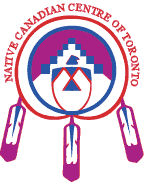 The Native Canadian Centre of Toronto is a community based, non-profit organization which provides a gathering place to deliver a wide range of programs and services based on Native cultural traditions and teachings. All are welcome.
The Native Canadian Centre of Toronto is a community based, non-profit organization which provides a gathering place to deliver a wide range of programs and services based on Native cultural traditions and teachings. All are welcome.
Over the years, the Native Canadian Centre has provided services of a social, recreational, cultural and spiritual nature. With more than 40,000 people of Native ancestry living and working in the Greater Toronto Area, the Centre continues to be as a focal point for programs and services. We share our facilities with many other non-profit and charitable organizations, and continue to act as a gathering place for other Native agencies.
The Native Canadian Centre of Toronto envisions a healthy urban Aboriginal community by living, learning and celebrating the Aboriginal culture. We do this by honoring our Aboriginal knowledge and traditions, integrating the spirit of youth and elders, and fostering the development of healthy families. With our commitment to self-determination, we will move toward an empowerment of our community through expanding our facilities and providing better services.
Native Men’s Residence (Na-Me-Res)
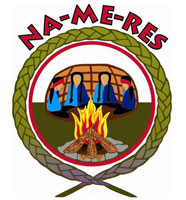 Na-Me-Res provides a 63 male bed shelter to house and serve the needs of homeless individuals in Toronto. Their objective is to reduce the number of homeless and to prevent those at risk of becoming homeless, by equipping them with the tools of empowerment, self-reliance, and economic independence. Na-Me-Res provides temporary homes for men, which fosters and maintains a healthy sense of community, cooperation and self-worth through the promotion of Traditional Native Culture and Values. They endeavor to build a strong foundation for their clients on their road to recovery and self-sufficiency. Aside from being a male and youth shelter, Na-Me-Res has grown into a multi-service organization which delivers a variety of outreach programs. One of their many programs, called ‘Street Help’, delivers clothing, hot meals, basic essentials, and instant referral service to the homeless daily, all across the Greater Toronto Area. Their ‘Gimme Shelter’ program is focused on building trust among hardcore homeless clients to ensure services to recovery are accessed in a timely manner. Gimme Shelter is their
Na-Me-Res provides a 63 male bed shelter to house and serve the needs of homeless individuals in Toronto. Their objective is to reduce the number of homeless and to prevent those at risk of becoming homeless, by equipping them with the tools of empowerment, self-reliance, and economic independence. Na-Me-Res provides temporary homes for men, which fosters and maintains a healthy sense of community, cooperation and self-worth through the promotion of Traditional Native Culture and Values. They endeavor to build a strong foundation for their clients on their road to recovery and self-sufficiency. Aside from being a male and youth shelter, Na-Me-Res has grown into a multi-service organization which delivers a variety of outreach programs. One of their many programs, called ‘Street Help’, delivers clothing, hot meals, basic essentials, and instant referral service to the homeless daily, all across the Greater Toronto Area. Their ‘Gimme Shelter’ program is focused on building trust among hardcore homeless clients to ensure services to recovery are accessed in a timely manner. Gimme Shelter is their mobile counseling outreach to the homeless
, which operates daily, with 2 counsellors on board. Their Housing and Aftercare Department, located at 26 Vaughan Rd., offers their assistance to help residents and non-residents make their transition to become self-sufficient by obtaining permanent housing. All housing needs are met by assisting in finding and setting up landlord appointments, securing a source of income, and the help of moving donated furniture to the residents’ new home.
Office des personnes handicapées du Québec (OPHQ)
OPHQ plays a key role in assessment, counseling, coordination and cooperation in order to increase social participation of people with disabilities. More specifically , the Board is responsible for ensuring compliance with the principles and rules set out in the Act to secure the rights of persons with disabilities for their school and workplace integration, municipalities and public and private agencies continue their efforts to improve opportunities for people with disabilities to integrate into and participate fully in society .The Board also oversees the coordination of activities relating to the preparation and delivery of services that affect people with disabilities and their families, and promotes and evaluates, on a collective basis, the professional and social integration of people with disabilities. In addition to promoting the interests of the latter and their families, the Office informs, advises, assists and advocates for them both on an individual and collective basis.
Ontario Research and Innovation Optical Network (ORION)
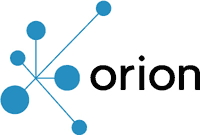 At ORION, we dedicate ourselves to connecting and supporting all of our research, education and innovation customers throughout Ontario.
At ORION, we dedicate ourselves to connecting and supporting all of our research, education and innovation customers throughout Ontario.
We are recognized as providing leadership and critical infrastructure that allows our members to collaboratively engage in making Ontario a global leader in innovation.
With one of the world’s fastest research and education networks, we enable our users to be connected to a world of possibilities.
By linking these members through our network to a variety of strategic partners, we deliver a collection of unique value-added capabilities that enhances their pursuit of knowledge, social impact and economic outcomes every day.
Current Students
Charlene Lindsay
Charlene Lindsay holds a two year paralegal communications diploma from Corinthian College, a four year honours degree from York University, and is currently working on completing a two year Master’s degree from the Faculty of Environmental Studies at York University. Although her research interests include human rights and disability issues, as well as the adverse affects of intergenerational trauma passed down from the survivors of the Residential School system; Her major area of concentration is geared toward Treaty Negotiations and Business Development on First Nations reserves, with a particular focus on sustainability initiatives in various sectors such as forestry, mining, and oil extraction.
She has been an activist for human rights and has advocated for the Aboriginal community for over ten years. Originally born and raised in Alberta to a Cree mother and a father of British origins, Charlene grew up in both an urban setting and on a First Nations reserve. She relocated to Ontario in pursuit of attaining a higher education. Shortly after completing college, she began to actively work in the legal profession and soon thereafter, she set her sights on becoming a lawyer. Upon completing her undergraduate degree, she received a formal acceptance into the Faculty of Law at the University of Ottawa. Although a career in law still sits on the horizon for Charlene, she is actively engaged in the possibility of expanding in her area of concentration and becoming a successful entrepreneur.
Laura Vukson
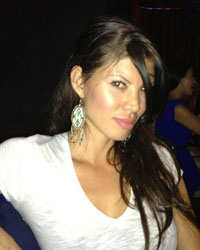 Laura Vukson, a Dene woman of the Tlicho Nation, is in her third year of York Universities International Development program. A passionate advocate of Indigenous rights and mental health awareness, Laura has enjoyed a researcher assistant position with Expanding the Circle: Aboriginal People with Disabilities Focusing on Rights. Laura has worked with Cosmic Volunteers to aide disabled children centers in Ho Ching Minh and Penh Penh as well as volunteered in the Budurburam Liberian Refugee Camp of Ghana. She is also an advocate for horses having rescued an ex racehorse, rehabilitated her and found her a long term home.
Laura Vukson, a Dene woman of the Tlicho Nation, is in her third year of York Universities International Development program. A passionate advocate of Indigenous rights and mental health awareness, Laura has enjoyed a researcher assistant position with Expanding the Circle: Aboriginal People with Disabilities Focusing on Rights. Laura has worked with Cosmic Volunteers to aide disabled children centers in Ho Ching Minh and Penh Penh as well as volunteered in the Budurburam Liberian Refugee Camp of Ghana. She is also an advocate for horses having rescued an ex racehorse, rehabilitated her and found her a long term home.
Past Students
- Jessica Cook, York University
- Jessica Vorstermans, York University
- Megan Bertasson, York University